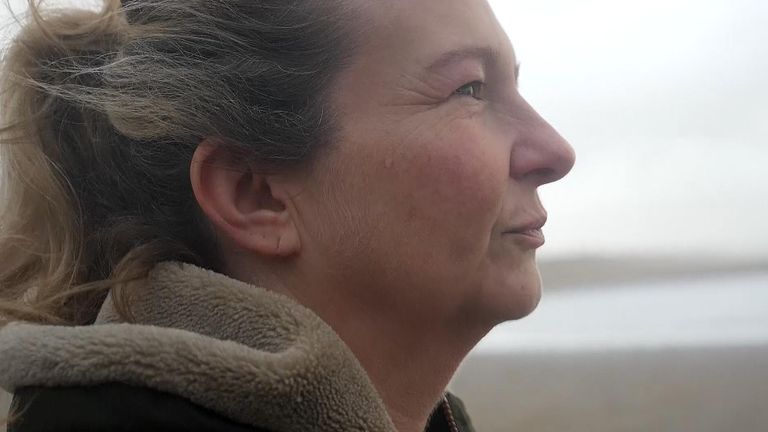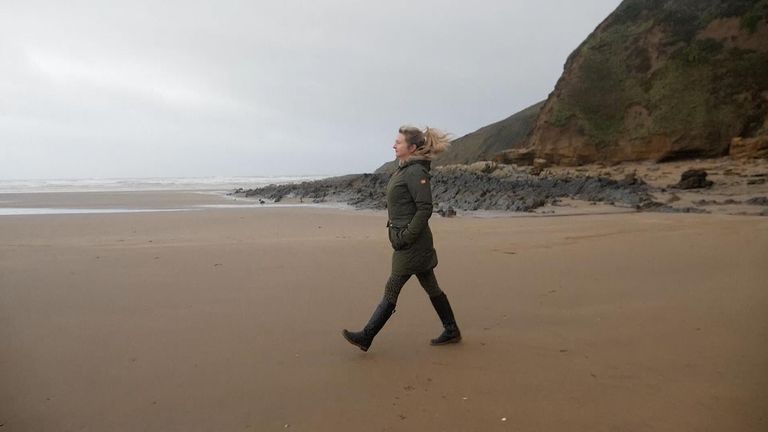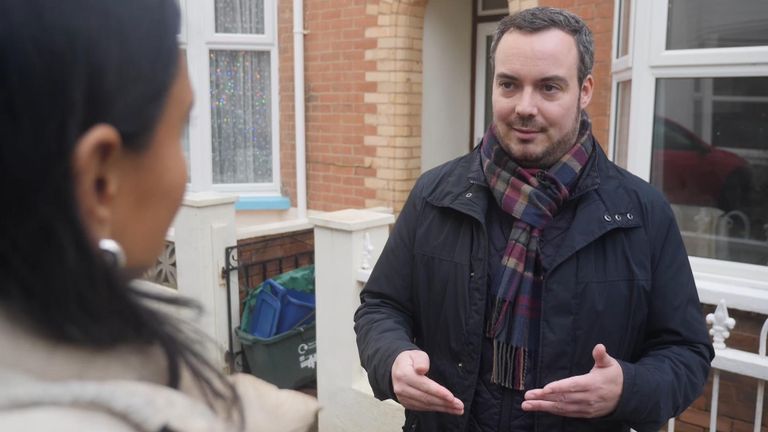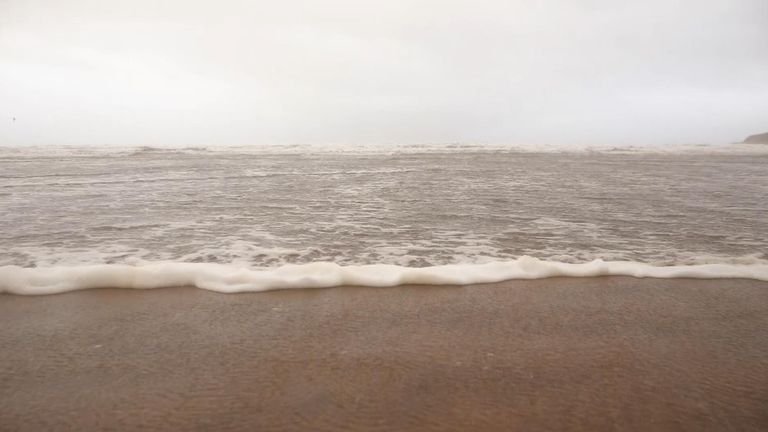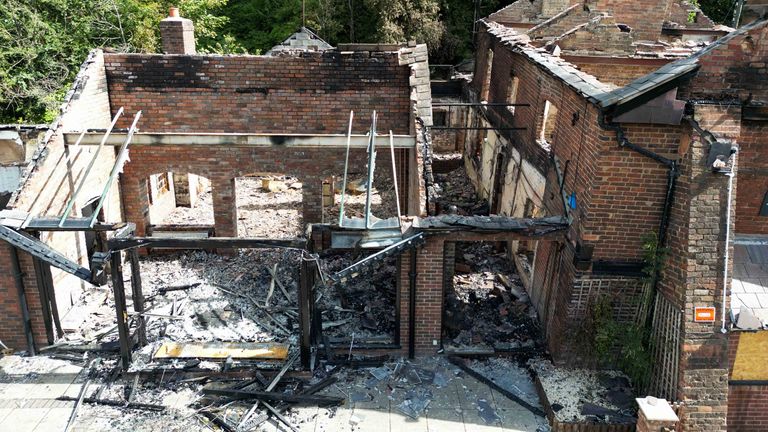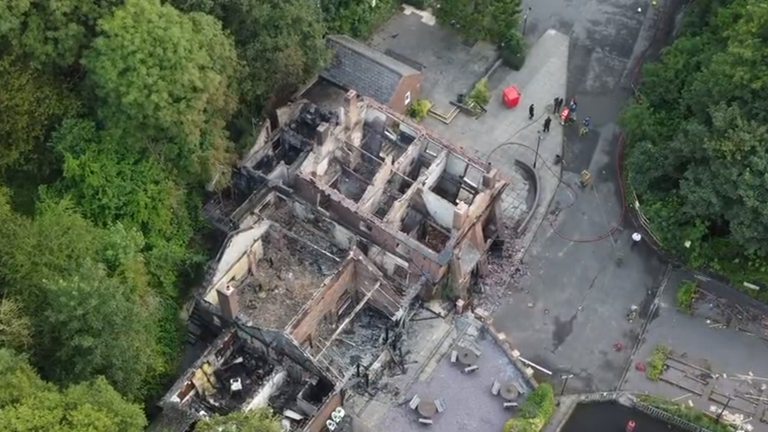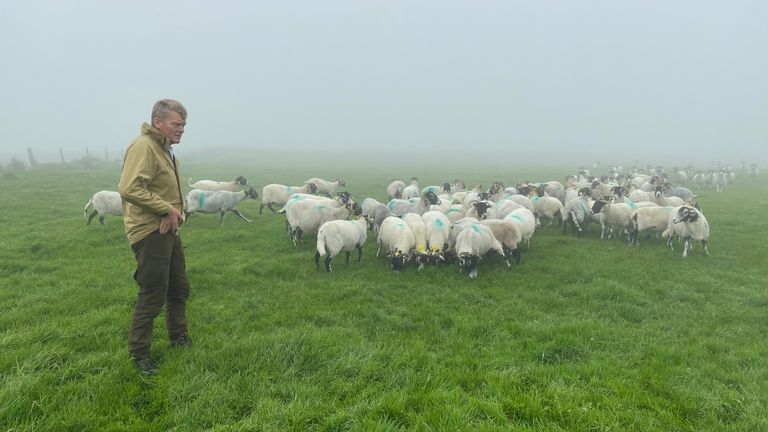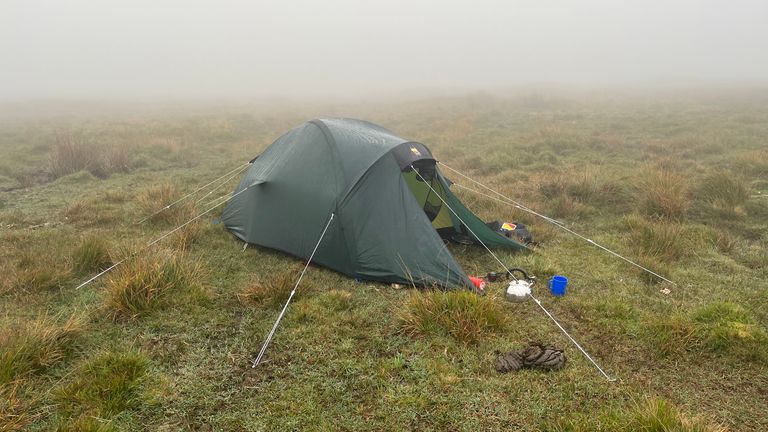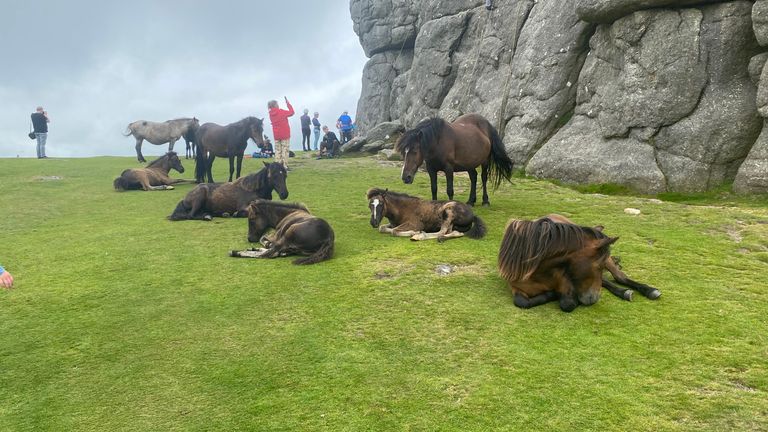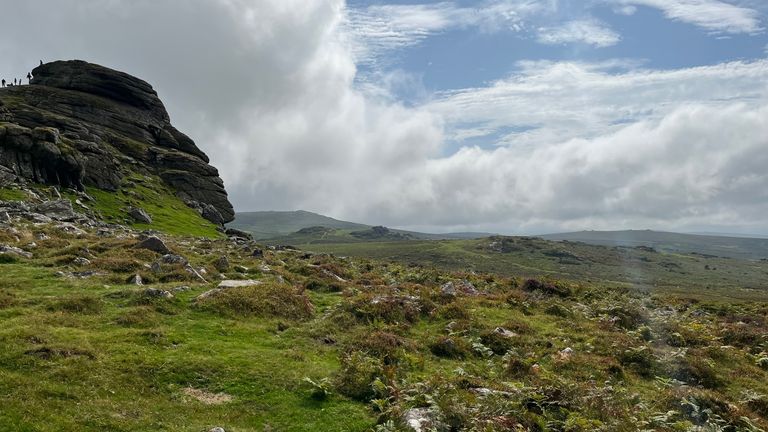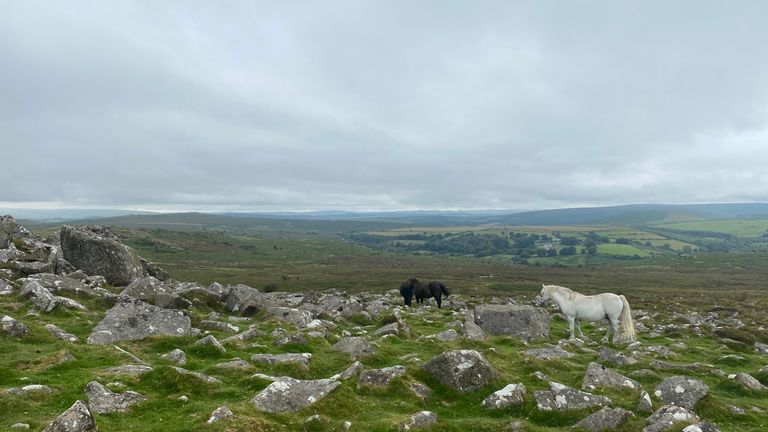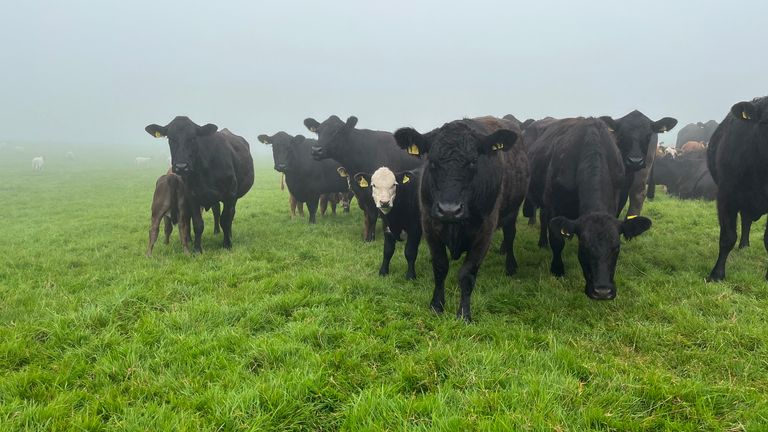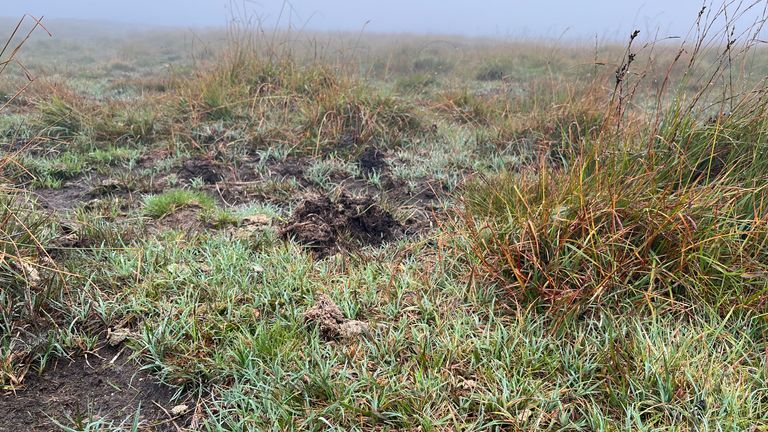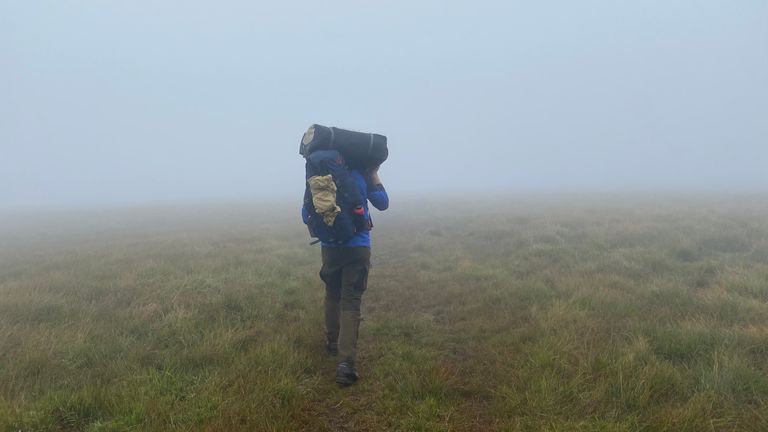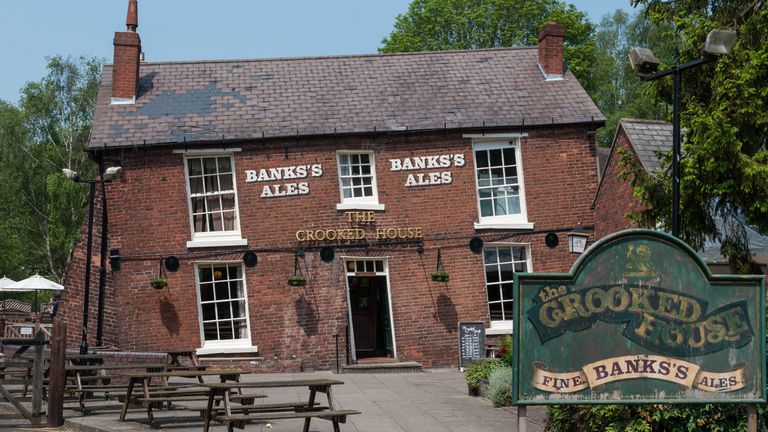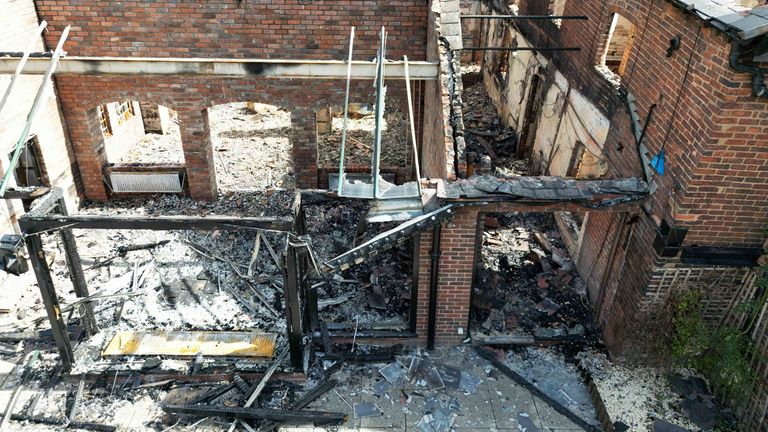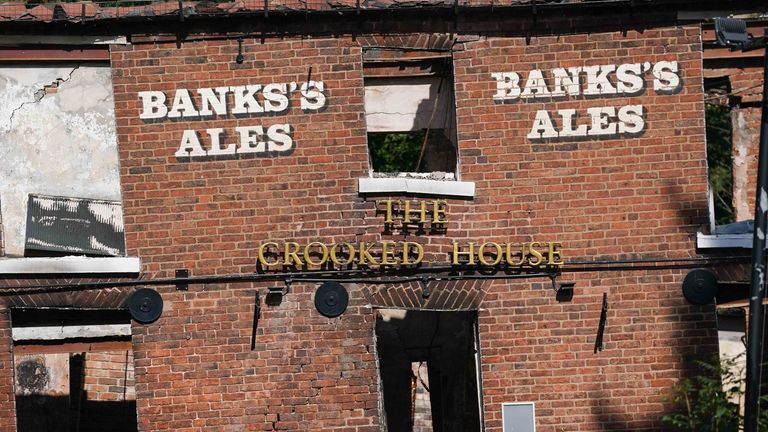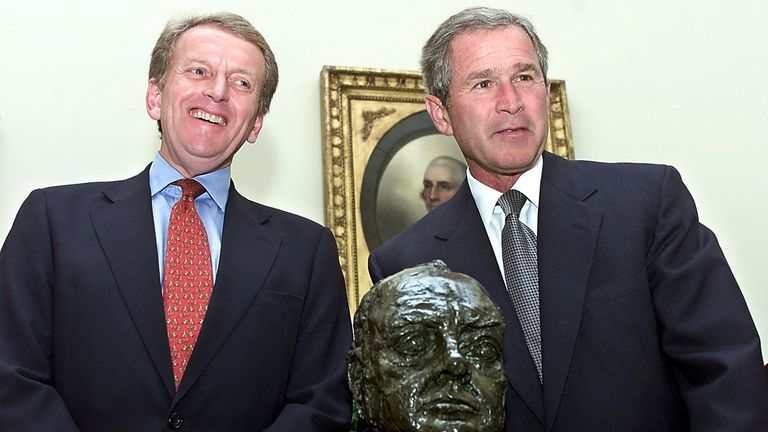Dartmoor National Park has been at the centre of a couple of overlapping stories this summer: the overturning of a ban on wild camping and arguments over whether livestock farmers were ruining or improving the place for nature.
A question that has echoes across many of our supposedly protected landscapes. So, those rows made good reasons to put my tent in my rucksack and head to the heath.
Dartmoor is 953 sq km and I aimed for Holne Moor, walking about a mile from the road through small clusters, barely herds, of cattle and ponies.
The sheep are a bit more numerous with 145,000 over the whole area.
The vegetation immediately around me is rough grass, stands of bracken and scrubby heather. Beautiful if you admire sparse, less so if you love bounty.
One of the conservationists accusations is that this place is over-grazed, with little variety of species and very few trees. Certainly avoiding the dung was a challenge when finding a camping pitch.
No baying beasts overnight but the morning brought one of the moor’s infamous fogs featured in Sherlock Holmes’ Hound Of The Baskervilles.
Striking camp and setting off through the murk I make a rendezvous with Guy Shrubsole, environmentalist and author who lives nearby.
“Our national parks are in a pretty shocking state for nature… they’ve actually found that on average, they’re in a worse condition than nature is, outside our national parks.
“We’d expect there to be a lot more dwarf shrub heath, things like bilberry and heather growing in much more abundance.
“And that obviously supports a whole range of other species of birds and mammals as well. Dartmoor is a very overgrazed landscape.
“Records suggest that after the second world war there were about 40,000 sheep grazed on the Dartmoor. By 1990 that had risen to something like 130,000.”
He would like to see national parks being a key part of the government’s ambition to have 30% of the UK protected for nature recovery by 2030.
Read more:
Hundreds of water voles reintroduced to Lake District
UK’s largest opencast coal mine confirms closure date
Thousands of hours of fishing still taking place in UK Marine Conservation Zones
But national parks in Britain never have been primarily for wilderness like Yellowstone or Yosemite in America. They are for the people who live there too. And many of the people who live there are farmers.
Plenty of them rear livestock and believe that grazed landscape, not scrubby woodland, is what people flock to see – 18 million visitors a year in Dartmoor – and point out that some wildlife needs pasture.
When we are there, a group curlew chicks relocated from East Anglia is released on Neil Coles’ farm.
He thinks much of the moor is now under-grazed.
“The birds have all gone because it is not the habitat they like. We need a balance of areas. Wooded in the valleys but we also need tight grazing on the top for the ground nesting birds. In a natural situation there would be herbivores, so we are managing that and producing food,” he said.
The vexed question of how many cows, sheep and ponies should be grazing, the moor is the subject of a government commissioned but independent review due to report in the autumn.
It will be scrutinised not just here but across many of our upland parks like The Lake District, the Yorkshire Dales and North York Moors which are facing similar dilemmas.
But the recommendations from government sponsored reports aren’t always followed. Four years ago there was much fanfare over the Glover Review into the future of our national parks.
One of its proposals was that parks should have a duty to enhance nature. That hasn’t been taken up.
Each national park is run by an authority with some control over planning but little real power other than encouraging different groups to talk to each other.
Ironically, they have more power over the built environment than the natural environment.
Kevin Bishop is chief executive of Dartmoor National Park and he wants national parks to be “the beating heart of a nature recovery network”.
So, I asked if he has the power to deliver that?
“We don’t have those powers. We don’t have the resources to do it. The government could change our purposes but without giving us the powers and without giving us the pounds new purposes are, in essence, meaningless.”
The power he really wants is to be able to change the behaviour of farmers by having control over the payments farmers get for looking after nature.
“The most important tool in my book for nature recovery is agri-environment agreements… We have no formal role in the current environment schemes.”
National parks can’t change significantly on their own. Their future rests on the powers we give them and that is a decision for parliament and the nation.
Spreaker
This content is provided by Spreaker, which may be using cookies and other technologies.
To show you this content, we need your permission to use cookies.
You can use the buttons below to amend your preferences to enable Spreaker cookies or to allow those cookies just once.
You can change your settings at any time via the Privacy Options.
Unfortunately we have been unable to verify if you have consented to Spreaker cookies.
To view this content you can use the button below to allow Spreaker cookies for this session only.
Enable Cookies
Allow Cookies Once
Watch The Climate Show with Tom Heap on Saturday and Sunday at 3pm and 7.30pm on Sky News, on the Sky News website and app, and on YouTube and Twitter.

